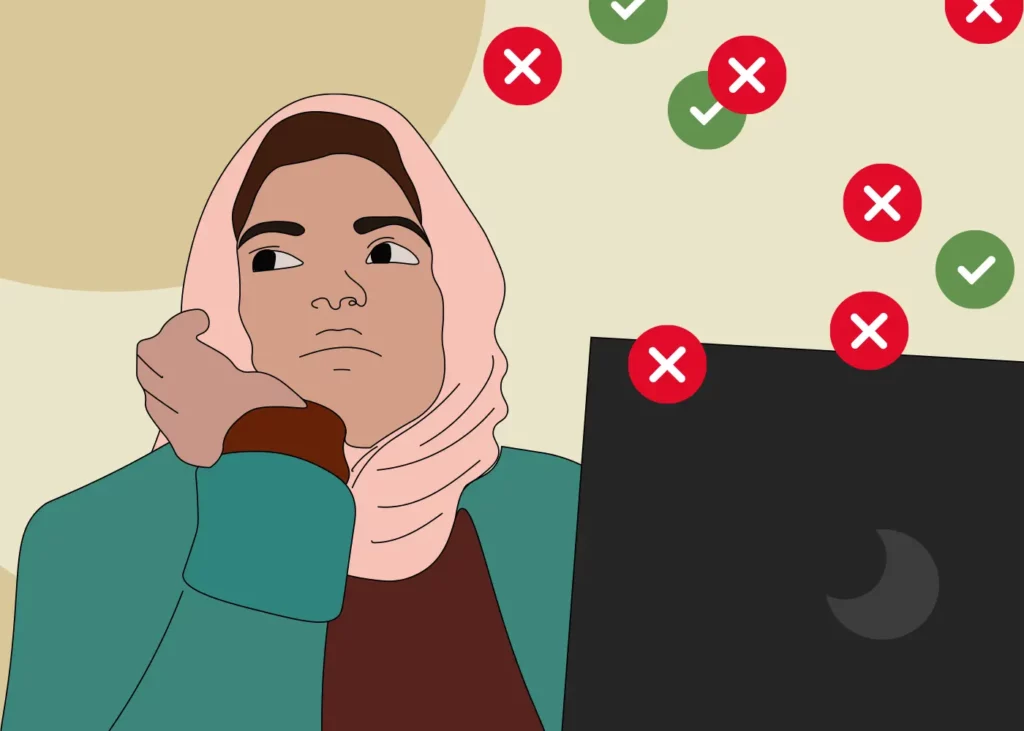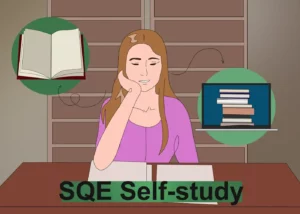
SQE Books and SQE Notes for Learning and Revision
Discover the art of balanced SQE preparation as we explore the synergy between traditional SQE books and focused SQE notes.

The SQE1 exam is composed only of multiple-choice questions (MCQs). As a result, in order to do well on the SQE 1, you will need to master the skill of answering MCQs. There is no doubt that you will have encountered a certain test or assessment which required you to answer MCQs. However, it can be a surprisingly difficult skill to learn. An SQE 1 multiple choice question will normally take the form of a scenario (typically 100 -200 words long), accompanied by a set of answers (of which the majority of them are wrong) and instructing you to select the one correct answer.
Imogen lives on Haywood Road in Queensbury. She believes that when her neighbour, Elliot, put up a fence near the boundary between their properties, he moved the fence towards her property by 15 inches. Given that her garden is already very small, she asked him to move the fence, which Elliot refused and he says that this area belongs to his property and the boundary fence was previously installed incorrectly.
She has since instructed a surveyor who confirmed that the boundary fence, in its current location encroaches onto Imogen’s land. You have ran a quick bankruptcy search on Imogen and found that bankruptcy proceedings have been issued against her in the last two weeks.
Elliot is now seeking advice as to what he could do to ensure that Imogen is able to pay his costs when he is successful in defending the claim? Also, is there any application Imogen could make against Elliot?
Please select the best option.
A Elliot can make no applications in this case, however, Imogen could seek to strike out Elliot’s defence.
B Elliot should seek a Security for Costs application and Imogen should seek Judgment in Default.
C Elliot should seek an Interim Prohibitory Injunction and Imogen cannot make any applications.
D Elliot should seek a Security for Costs application and Imogen should make a Summary judgment application.
E No application should be made by either parties.
As you may see, there is quite a lot to read. However, there is also the challenge of having to read such a scenario in an allocated amount of time as well as selecting a correct answer. You will have 2 hours and 33 minutes to complete an SQE1 exam for which you will need to answer 90 MCQs. Therefore, you will only have an average of 2 minutes and 10 seconds to read one MCQ and answer it. The challenge for passing the SQE1 is ultimately how fast you are able to correctly answer the MCQs.
The habits you will pick up when answering MCQs will most likely be apparent when taking the SQE1 exam. Therefore, small things such as cutting distractions (remove that phone from your desk!) will increase focus and put you in the correct mindset when answering the MCQs in the exam. An obvious thing to note is that the more MCQs you practice the better you will do.
Practicing SQE MCQs and revising for exams will take time. It is recommended that you start practicing SQE1 MCQs as early as possible. The hardest MCQs you will come across will most likely be the first ones you will answer. To practice them, try to put yourself in the conditions of an exam (silent room, no distractions and a certain time limit). When starting your first sets of MCQs, you may allow yourself to have some handicaps. For example, you could check the answer of each MCQ just after you have answered it (rather than marking it all at the end). This may not just fill you with confidence but also allow you to understand what you got wrong and make sense of what makes the answer to a particular MCQ a correct one. As you get better at MCQs, try to take away those handicaps. For example, such as shortening the time limit in answering MCQs and not looking at the answers until you have completed all the MCQs.
When reading SQE1 MCQs, you will need to pick up certain bits of information in order to answer your question. Given that you have so little time, it is recommended that you try to focus and differentiate between information that is not relevant and information that is relevant. Therefore, try to pick up on those keywords and use them as clues as to what the correct answer could be. You need to make sure you narrow down your search. Taking the example of the MCQ above, such keywords may be “bankruptcy” and “defending the claim”. Further bits of information in this particular example would be to identify who is the defendant and who is the claimant. These particular points of information will point towards the correct answer. Meanwhile, you may have seen that terms such as “boundary” or “property” may point towards the MCQ relating to property law. However, the question itself relates to litigation and asks you to make a selection as to what “application” to make. Therefore, it is advised that you take note of these “false friends” and focus on the correct “key words”.
You will often find that the SQE1 MCQs have one or two answers which are very similar and from faraway could be mistaken as being the same answer. These types of answers are known as implausible distractors. This is why it is recommended to thoroughly read the MCQ answers. An incorrect answer could only be incorrect as a result of one word being misplaced. The more answers you eliminate the less options you will have to choose from! Therefore, you could actually narrow down the options to the one correct answer.
If you have spent more than four minutes to answer a tricky MCQ, it is recommended that you move onto the next question. The aim of the assessment is not to answer every MCQ correctly, but to answer as many MCQs correctly. As a result, do not feel discouraged because you cannot answer that particular MCQ. Just move on! There are plenty more MCQs in the assessment. However, it is advised that you still pick an option as you still have a 20% chance of getting a question right through a blind guess.
Ultimately, the most fundamental thing you can do in order to prepare yourself for the SQE1 MCQs, is to answer as many practice questions as possible. Through picking up bad habits and developing the correct thought processes you will certainly be successful in your SQE1 exams.

Discover the art of balanced SQE preparation as we explore the synergy between traditional SQE books and focused SQE notes.

Explore the journey of becoming a solicitor in the UK as an overseas student. Understand the SQE process, requirements, and essential tips for success.

Learn how the SQE for foreign qualified lawyers can help you practice in the UK. A simple, clear guide to the SQE exam and becoming a solicitor in the UK.

Decide between SQE self-study and prep courses. Optimise your legal career with insights into SQE self-study advantages. Explore now.
Introducing Brigitte’s FLK – An online SQE supplementary learning and revision resource to help you in your understanding and application for the SQE preparation course and SQE exam. Founded from the same trusted author of Brigitte’s Notes and Brigitte’s LPC.
Copyright © 2024 Brigitte’s FLK | Brigitte’s FLK is not sponsored or endorsed by any college or university
